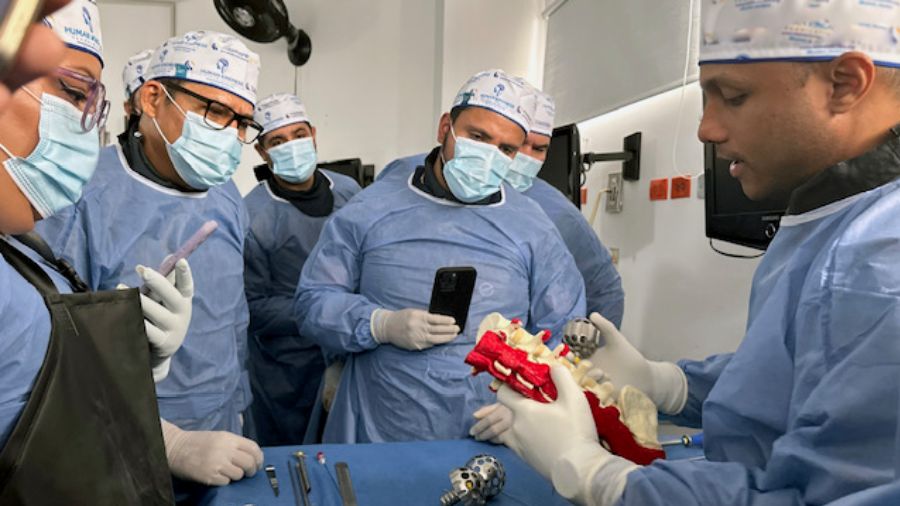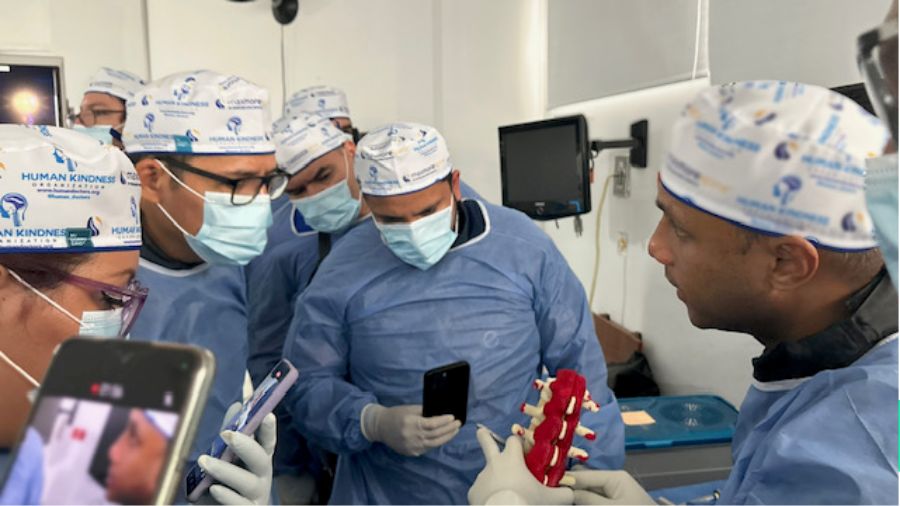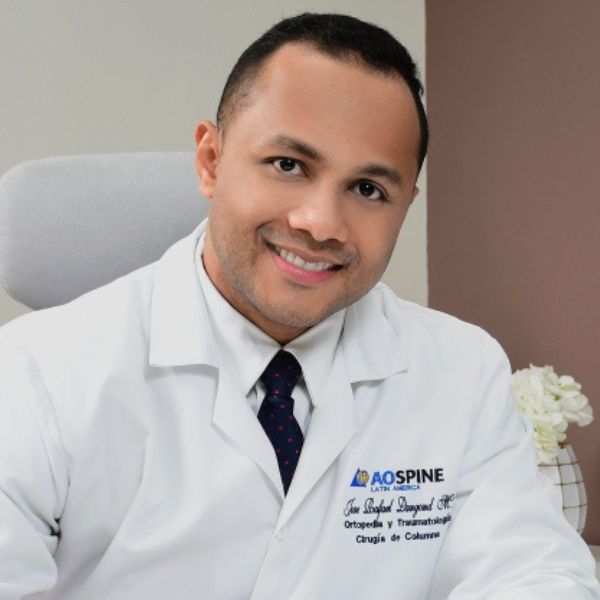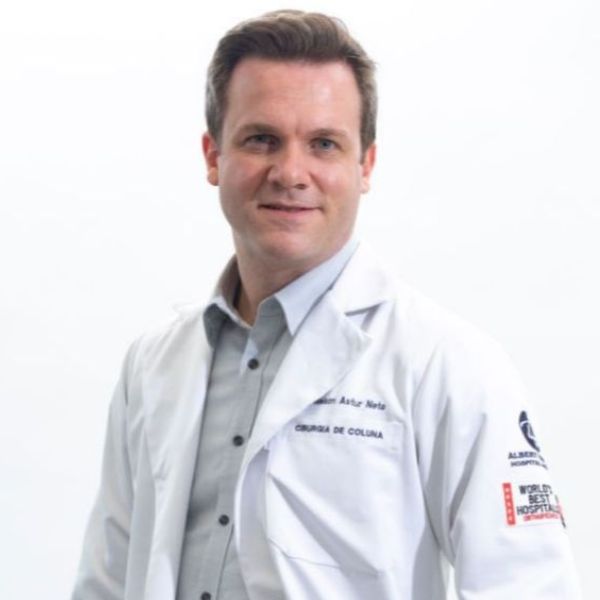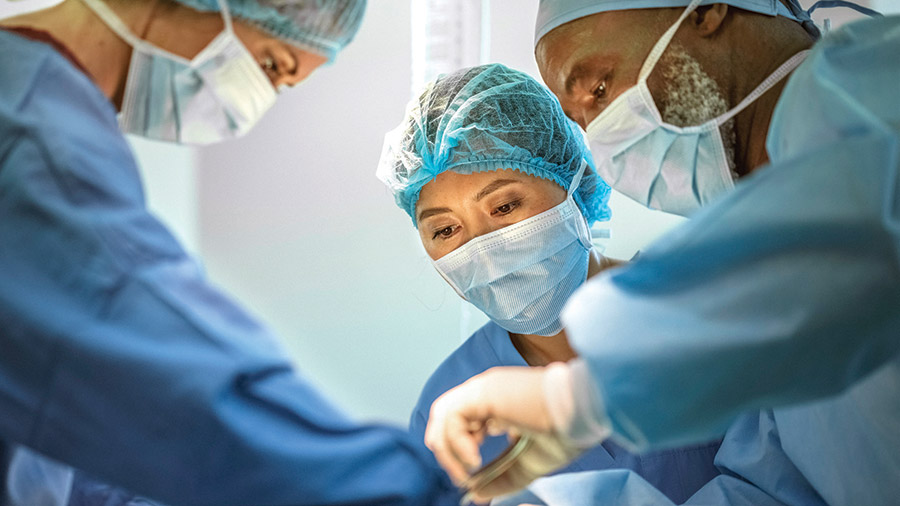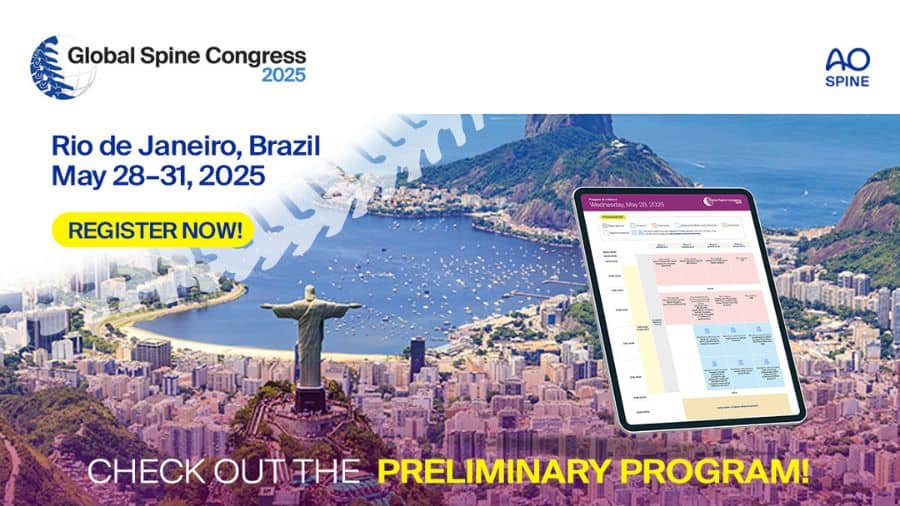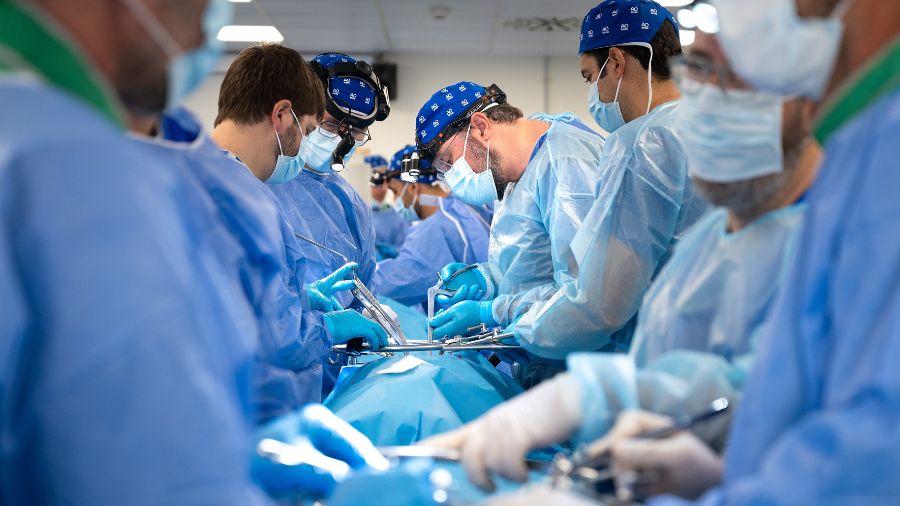The first years of practice of young spine surgeons in Latin America: why fellowships matter
BY DR JOSE RAFAEL DANGOND MILIAN AND DR NELSON ASTUR
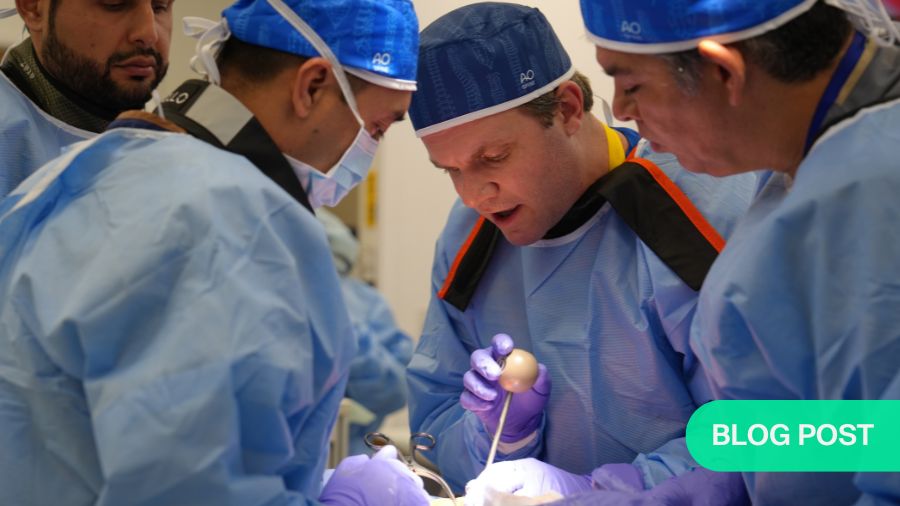
The journey from residency to becoming an established spine surgeon is marked by significant challenges and opportunities, particularly in Latin America. For young spine surgeons, the first few years of practice are crucial in shaping their careers. These years are not only a period of professional growth but also a time to solidify their skills, establish a reputation, and navigate the complexities of the healthcare system in their respective countries. One of the most impactful avenues for accelerating this process is the completion of a fellowship program, such as the one offered by AO Spine.
Disclaimer: The article represents the opinion of individual authors exclusively and not necessarily the opinion of AO or its clinical specialties.
Jose Rafael Dangond, Alfredo Guiroy, Omar Marroquín Herrera, Guisela Quinteros, Pedro Couri, Fernando Alvarado, Nelson Astur: The First Years of Practice of Young Spine Surgeons in Latin America, World Neurosurgery, Volume 190, 2024.
Why fellowship programs are important
Fellowships are advanced training programs that provide specialized knowledge and hands-on experience in a specific area of medicine. For spine surgeons, fellowships are an invaluable resource, offering them the opportunity to refine their surgical skills, learn new techniques, and gain exposure to the latest advancements in spine surgery. In Latin America, where the healthcare landscape is diverse and often challenging, fellowships can bridge the gap between residency and independent practice, equipping young surgeons with the tools they need to succeed.
The AO Spine Fellowship is one such program that has garnered attention in the region. According to a recent survey with associates and short-term fellows who completed their fellowship within the past five years, the program has had a significant impact on their early years of practice. The survey, which included 46 spine surgeons from across Latin America, revealed that the fellowship program plays a critical role in the professional development of young surgeons.
More confidence in degenerative spine after fellowship
The survey results provide a comprehensive overview of the first three years of practice for young spine surgeons in Latin America. Notably, the countries with the highest participation in the AO Spine Fellowship program are Argentina, Brazil, and Colombia, with Argentina leading at 30.7%. The majority of participants were between the ages of 36 and 45, and a significant 75% of them were orthopaedists.
One of the most striking findings was that 95% of the respondents reported feeling more comfortable working in degenerative spine pathology after completing the fellowship. This highlights the effectiveness of the program in enhancing the clinical confidence of young surgeons. Moreover, while the standard posterior approach remains the preferred method for many, there is a growing interest in endoscopic and minimally invasive techniques among junior surgeons. This shift in interest reflects the ongoing evolution in surgical practices and the importance of staying abreast of new developments in the field.
Completing a fellowship opens many doors
The advantages of completing a fellowship extend beyond the immediate improvement in surgical skills. For young spine surgeons in Latin America, a fellowship can open doors to new opportunities, both locally and internationally.
It enhances their professional network, provides access to a wealth of knowledge and resources, and often leads to better job prospects. Additionally, fellowships can help surgeons overcome some of the common challenges they face in their early careers, such as the lack of standardized training and the uneven levels of experience across different countries in the region.
Furthermore, the fellowship experience can be a critical factor in the decision-making process for surgeons who are considering whether to stay in their home country or seek opportunities abroad. The survey indicated that many young surgeons who participated in the AO Spine Fellowship felt more prepared to handle the demands of their profession, regardless of where they chose to practice.
AO Spine fellowships position surgeons for future success
The first years of practice for young spine surgeons in Latin America are pivotal in defining their career trajectory. The AO Spine Fellowship program has proven to be a valuable asset in this critical phase, offering young surgeons the training, experience, and confidence they need to excel in their field. As the demand for spine surgery continues to grow in the region, the role of fellowships in shaping the next generation of spine surgeons cannot be overstated.
By participating in such programs, young surgeons not only enhance their technical skills but also position themselves for long-term success in a competitive and rapidly evolving field. As the survey results suggest, the impact of fellowships like AO Spine goes beyond the operating room, influencing the broader professional landscape for spine surgeons in Latin America.
About the authors:
Dr Jose Rafael Dangond Milian is a board certified spine surgeon and has been practicing in Barranquilla and Cartagena Colombia for the last 5 years. He received his medical degree from the North University of Barranquilla, completed his orthopedic residency in university foundation for health sciences of Bogota, and followed by a Spine Surgery fellowship at Santa Fe Foundation of Bogota. Dangond spent years 2019–2020 at Santa Case of So Paul with the AO spine Fellowship program. Today, he is a faculty tutor for the same program.
Dr. Dangond currently practices at Hospital Serena del Mar in Cartagena, Colombia, and Campbell Clinic in Barranquilla. In both institutions he is the coordinator of the spinal surgery program. He is also a professor of postgraduate studies in orthopedics and traumatology at the Simon Bolivar University in Barranquilla.
Dr Nelson Astur is a board certified spine surgeon and has been practicing in Sao Paulo, Brazil for the last 15 years. He received his medical degree from the University of Sao Paulo School of Medicine, completed his orthopaedic residency followed by a Spine Surgery fellowship at Santa Casa de Sao Paulo. He spent years 2011–2012 at Campbell Clinic, University of Tennesse, Memphis, as a Pediatric Spine Fellow and became Medical Instructor. He Specialized in Minimally Invasive Spine Surgery at Semmes-Murphey Neurologic & Spine Institute in 2012, continued his pediatric spine education at Boston Children’s Hospital, Harvard Medical School in 2014, and received a grant for a deformity fellowship at Queen Mary Hospital, Hong Kong University.
Astur has been published in several issues of Journal of Bone and Joint Surgery, The Spine Journal, Global Spine Journal, European Spine Journal, Journal of the American Academy of Orthopaedic Surgeons, Journal of Pediatric Orthopaedics and many others highly impact medical journals. He currently practices at Hospital Israelita Albert Einstein in Sao Paulo, Brazil where he directs the Spine Fellowship Program and is the Past-Research Officer for AO Spine Latin America.
References and further reading:
-
Jose Rafael Dangond, Alfredo Guiroy, Omar Marroquín Herrera, Guisela Quinteros, Pedro Couri, Fernando Alvarado, Nelson Astur: The First Years of Practice of Young Spine Surgeons in Latin America, World Neurosurgery, Volume 190, 2024.
You might also be interested in:
AO Spine fellowships
Providing additional experience in surgical techniques for fully trained orthopedic and neurosurgeons interested in spine surgery.
Global Spine Congress
Join one of the biggest annual gatherings of international spine surgeons for the latest in research and innovation, education and networking.
AO Spine in the regions
The leading spine organization in the regions ensuring representation of the diverse needs and opportunities to get involved.
AO Spine hands-on courses
AO Spine Competency-Based Curriculum Courses—the gold standard hands-on courses


